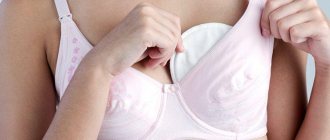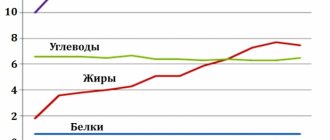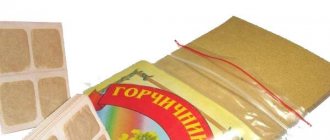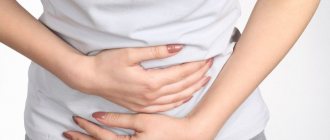Contents:
- Causes
- First aid
- Deadlines
- Drug treatment
After the birth of a baby, each woman has to go through her own recovery period, which lasts differently for everyone. Almost 80% of young mothers in the first months face such a problem as swelling after childbirth, which spreads to the face and figure as a whole. However, the legs and vagina most often suffer, because while carrying a baby they had to withstand enormous loads. What are the main causes of postpartum tissue swelling and is it possible to somehow stop this process?
Causes
First, you should make sure that you actually have swelling and not swelling. Press your finger against the enlarged tissue and release. A hole is formed, which will disappear in a couple of minutes. This is swelling, and after childbirth it occurs for the following reasons:
- copious, excessive fluid intake in the last stages of pregnancy and in the first days after childbirth;
- accumulation of sodium salts in tissues;
- genitourinary diseases with increasing load on the kidneys (accompanied by dry skin throughout the body and the rapid spread of swelling);
- problems with the cardiovascular system (in parallel with the formation of edema, spider veins and plaques appear on different parts of the body, as well as convulsions);
- too much stress on the legs (if, for example, a young mother has to cope with the baby and household chores alone);
- hormonal changes;
- while carrying a baby, the growing uterus puts pressure on nearby organs, thereby complicating the outflow of blood from the limbs;
- in the blood of a pregnant woman, the level of iron decreases, which leads to postpartum hypothyroidism;
- venous insufficiency, varicose veins - this is the main reason why legs swell after childbirth, since the veins cannot cope with the load that befell them during this period;
- an abundance of fried, salty, spicy, sweet foods in the diet;
- side effects after intravenous infusions that were given during childbirth;
- since during the child’s passage through the birth canal the vagina is severely injured (especially if stitches were placed for ruptures), swelling of the perineum occurs after childbirth, which, with proper care, should go away in the maternity hospital;
- if an infection occurs (this is rare, but it still happens), swelling of the labia and the entire vagina may begin: in this case, you will have to undergo a course of antibiotic therapy.
All these problems can be solved quite quickly and easily if the cause is identified correctly. Most often, swelling of the legs is observed after childbirth, since all the excess body fluid accumulates in them, and the outflow is impaired due to the above factors. To get rid of them, you first need to eliminate the root cause of this phenomenon.
Causes of edema after childbirth
Edema after childbirth occurs not only due to excessive fluid intake, but also due to the accumulation of sodium salts in the tissues. In addition, edema can be associated with problems of the cardiovascular and urinary systems. Since the uterus actively grows during pregnancy and puts pressure on the organs, the outflow of blood from the lower and upper extremities slows down. As a result, swelling occurs. Postpartum hypothyroidism also leads to swelling due to decreased iron levels in the blood. If a woman stands and walks a lot, rarely rests without giving her legs rest, and also has venous insufficiency, then she has every chance of getting edema.
Treatment of edema after childbirth
Doctors advise drinking as little water as possible and not eating spicy, salty, fatty, sour, smoked or fried foods. All this only increases thirst. Dill, honey water with lemon, green tea, diuretic herbs are useful for edema, but soda and sweet drinks will not help. Instead, you need to drink still water, fruit drinks, and compotes without sugar. It is necessary and possible to consume anything that is a diuretic. In general, you are allowed to drink no more than one and a half liters of liquid per day (not counting broths, soups, fruits, vegetables). Women suffering from edema are advised to wear tight tights and often take baths for their hands and feet with the addition of medications that have a diuretic effect. If swelling predominates in the legs, then you must give them rest, and as often as possible: lie horizontally, placing a pillow under your legs so that they are slightly elevated in relation to the body. By following these simple rules, you can get rid of swelling in a couple of weeks. Parents should remember that in the absence of chronic diseases, doctors do not recommend drug treatment for edema after childbirth. This is especially important if the newborn baby is breastfed. During this period, the mother’s health needs attention and support more than ever, so you should not self-medicate or take diuretics, and in case of any complications, immediately consult a doctor. Be healthy!
First aid
As soon as you notice that your legs are swollen after childbirth for no apparent reason (i.e. you did not receive intravenous infusions during the birth of your baby and you have never suffered from a disorder of the genitourinary or circulatory systems), try to solve this problem yourself with the following ways.
- Reduce fluid intake to 1.5 liters per day. To prevent this from affecting lactation in any way, drink hot tea with milk.
- Try to get more rest. Reduce the load on your limbs: walk less (if swelling has developed in your legs), do not carry your baby in your arms all the time (if the problem affects them). Start doing gymnastics.
- While sitting, try to raise your legs higher.
- To relieve swelling of the perineum, apply a heating pad with ice.
- Eliminate fried, salty, spicy, and overly sweet foods from your diet. But it’s worth paying attention to sea buckthorn, viburnum, lemons, grapes, tomatoes and cranberries.
- Daily warm and cold baths will help get rid of swelling after childbirth, to which it is useful to add sea salt, chamomile, juniper, birch leaves, and mint.
- Put your baby to your breast more often.
- Ask someone from your family to massage the swollen areas in the evenings.
- If you know for sure that you have severe swelling of your legs due to problems with the veins, take a contrast shower several times a day. It activates blood circulation and strengthens blood vessels.
- In addition, those whose legs are very swollen after childbirth can be recommended to wear comfortable, therapeutic compression garments (stockings or tights, for example).
- Try to sleep on your left side: this position will allow you to remove swelling within a few days, as it improves fluid outflow and blood circulation.
If you did everything correctly, the defect will disappear in just a week, returning you to your former shape. However, everything is much worse if after childbirth the swelling does not go away for a long time. In this case, you should worry and seek help from doctors.
Treatment of leg swelling after childbirth
As soon as you notice that your legs begin to swell, consult a therapist who will prescribe you treatment or give you a referral to a specialist.
A phlebologist deals directly with the problem of vascular diseases; he will help determine the cause of edema and prescribe adequate treatment. You will probably also need to be seen by a cardiologist. Surgical treatment in case of edema is prescribed in exceptional cases, when the disease is complex and it is not possible to achieve a cure with medication. Usually, after examining and passing the necessary tests, the doctor will prescribe medications, massage, compression garments and advise on ways to prevent edema.
If you cannot get help from a doctor right now and the swelling is causing you discomfort, the following may be temporary measures:
- Ice foot massage. It is better if the ice is made from a decoction of sage, eucalyptus, and yarrow.
- Rotating your feet and walking on tiptoes will help improve blood circulation and reduce the feeling of heaviness in your legs. Try to reach pencils lying on the floor with your toes.
- A contrast shower will bring relief, which should be finished with cool water, and then thoroughly rub your feet and apply a softening cream.
- Comfortable shoes will be important during this period, as well as the correct sitting position: do not cross your legs.
Traditional medicine
Traditional methods of treating edema can only be combined with adequate medical prescription, since they do not treat the disease, but only alleviate its symptoms.
- Swelling of the legs is relieved by baths with sea salt and infusions of nettle, chamomile or lemon balm, as well as burdock and birch leaves. This tones and relieves tired legs.
- Diuretic decoctions of horsetail, corn silk or birch buds help relieve swelling.
Swelling of the legs after childbirth can have various causes, and they are not always harmless, as it seems at first glance. Swelling can serve as the first sign of serious illness. You shouldn’t neglect your health and trust that “it will go away on its own.” Pay attention to your health and do not delay visiting the doctor.
Hello friends! Let's look at a topic today that is familiar to most young mothers. This is swelling after childbirth, which is observed in almost 80% of women who have recently given birth. What causes swelling after childbirth? Can they be avoided? And how to deal with them? Let's take a closer look.
Edema occurs because too much fluid accumulates in the body. Due to its point nature, edema differs from swelling. If you press your finger on the swelling, then after half a minute a hole will appear in this place. Swelling after childbirth is a very common occurrence among young mothers. For some, only their arms or legs swell, bags appear under their eyes, and for some, their entire figure suffers. If intravenous infusions were given during childbirth, the swelling will go away later. Often, swelling contributes to breast engorgement and changes in the shape of the nipple. The skin in these places becomes wrinkled and dry. Swelling prevents the baby from attaching to the breast, which is why some women simply cannot breastfeed their children. In addition, due to swelling after childbirth, women often have to wear shoes and clothes several sizes larger. Of course, they don’t feel much pleasure from this, and dream of returning to their former form as soon as possible.
Deadlines
With such a misfortune, it is quite understandable for women to worry about when the swelling will go away after childbirth and they won’t have to worry about it. Ideally, if the process is not provoked by serious diseases of various organs and systems, everything should go away in 1 - maximum 2 weeks. Despite the fact that these terms are very individual and arbitrary, if the problem does not go away longer than the specified time, you should immediately consult a doctor, undergo an examination and find out the causes of your condition. Only after this they will tell you for sure whether the swelling on your body after childbirth will go away in the near future. For a speedy recovery, you will have to undergo a full course of treatment prescribed by a specialist.
Drug treatment
Modern women, thanks to the Internet, are maximally informed about the processes that occur in their bodies before and after childbirth. Knowing that the main cause of edema is fluid retention in the tissues, they begin to actively drink diuretics, thereby driving themselves into a trap. Firstly, lactation is disrupted. Secondly, the child suffers, who also has to swallow these drugs through mother's milk. Thirdly, in most cases the swelling never goes away, because the kidneys turn out to be fine.
Do you want to know for sure how long after childbirth the swelling goes away and your figure is completely restored? Only a doctor can answer this question after an examination:
- if these are pathologies of the circulatory or genitourinary systems, therapy is prescribed for up to 1 month;
- if it is varicose veins in an advanced state, you will have to undergo a longer course of treatment (up to six months, if not more);
- the doctor will determine whether you should use diuretics and which ones, so as not to harm lactation and the baby;
- swelling of the vagina after childbirth in the presence of infection is treated with antibiotics;
- Vitamins and microelements are often prescribed, the lack of which can be detected in the body of a young mother.
If you know the causes of postpartum edema, you can get rid of them in the shortest possible time, which will shorten the recovery period and quickly return to normal. It is better to think about this as early as possible: even while carrying a child. If you take preventive measures, then you won’t have to suffer from pain and complexes about blurred forms. If you were unable to avoid this misfortune, be sure to undergo a course of treatment so that nothing interferes with your communication with your baby.
New articles
we are in social networks
up
Many women after childbirth experience excessive swelling of their legs, arms and even face. Often, swelling occurs during pregnancy, intensifies in the last trimester and persists even after the birth of the baby. Some mothers are very absorbed in caring for the child, which is why they do not pay attention to swelling after childbirth. However, doctors do not recommend ignoring this problem, as it may indicate the presence of a hidden disease in the body.
Swelling after childbirth not only spoils a woman’s appearance and causes difficulty in choosing clothes and shoes, but also causes hardening of the breasts, which makes feeding the baby difficult.
Is it possible to take a diuretic during pregnancy?
If a woman expecting a baby has swelling of her limbs, she should immediately contact her gynecologist and tell him about it. The doctor, after examining the expectant mother, will direct her to undergo unscheduled blood and urine tests, and possibly do an ultrasound examination of the heart, liver or kidneys, since increased swelling is a symptom of certain diseases. If the test results do not show signs of inflammatory diseases, in particular infections of the genitourinary system, the obstetrician-gynecologist will prescribe a diuretic to the woman for edema during pregnancy. It is very important that the diuretic is prescribed to the expectant mother by a qualified medical specialist, and not by a neighbor next door or a friend who was also pregnant. Since many popular and effective diuretic drugs cannot be taken by women expecting a child.
But, despite this, some expectant mothers voluntarily decide which medications that have a diuretic effect to take. Such women do not always carefully read the instructions for medications and pay attention to whether this diuretic can be taken during pregnancy. Unfortunately, quite often such uncontrolled use of medications leads to complications during an interesting situation, in particular to a lack of vitamins and minerals, as well as dehydration.
What causes swelling
In most cases, the causes of swelling lie in excessive stress on the mother's body or in disruption of the activity of some of its systems. Very often, swelling after childbirth occurs in nursing women. When breastfeeding, to increase the amount of milk, mothers try to drink as much liquid as possible, which causes its accumulation in the body and increases swelling.
Often swelling is caused by additional manipulations that were performed during childbirth. For example, with intravenous infusion of birth-stimulating drugs, swelling may appear on a woman’s body and face. However, they do not require special measures and go away on their own during the first week after birth.
In the last months of pregnancy, the load on the kidneys increases greatly, which is why they cannot cope with the function of processing the required amount of fluid. After childbirth, kidney function is restored and swelling goes away within a week. However, if a woman had kidney disease before pregnancy, then swelling can persist for quite a long time. Other causes of swelling include the following:
- deposition of sodium salts in the soft tissues of the body;
- impaired blood flow caused by an increase in the size of the uterus and its pressure on the internal organs;
- disruption of the cardiovascular system;
- varicose veins, fragility of blood vessels, thrombophlebitis contribute to fluid retention in tissues, the localization of edema in such cases coincides with the location of damaged vessels;
- problems with the thyroid gland;
- prolonged walking, standing, heavy load on the legs, especially in women with venous insufficiency;
- poor nutrition, consisting of excessive consumption of salty, spicy, fatty or sweet foods, makes the kidneys ineffective.
The initial symptoms of incipient varicose veins are spider veins on the skin, heaviness in the legs, and swelling. If swelling appears on both legs symmetrically, then most likely we are talking about varicose veins. And if a change in skin color and swelling is observed only on one leg, then this is a symptom of venous thrombosis. This disease is extremely dangerous and therefore requires urgent medical examination.
Causes of leg swelling after childbirth
- Eating disorders and improper daily routine. This reason may seem frivolous, but together, fatigue, junk food (pickles, marinades and smoked meats to a greater extent), disturbances in food consumption contribute to the appearance of swelling during pregnancy and after childbirth.
- Diseases of the circulatory system. Varicose veins can cause heaviness in the legs and muscle cramps. The appearance of spider veins indicates the manifestation of the first signs of varicose veins.
- Diseases of the genitourinary system. Kidney disease usually causes swelling in both legs. An additional sign may be a change in the color of urine and the nature of urination. The disease can occur without fever and nagging pain in the lower back.
- Cardiovascular diseases can also cause swelling, along with diseases of the digestive system, as well as problems with the thyroid gland, etc.
Prevention of edema
- Exclusion from the diet of fatty, salty, pickled, smoked foods, and carbonated drinks.
- A balanced diet and regular consumption of vegetables, berries and fruits (cranberries, viburnum, citrus fruits, grapes, etc.) - products that help thin the blood.
- Avoid physical and psychological stress, give the body time to rest and recover. Rest with your legs elevated so that your feet are higher than your waist. If you have to stand for a long time, stand on your tiptoes from time to time.
- Soothing foot baths and foot massage.
Basic methods of combating edema
Usually, swelling after childbirth disappears after about a week, as the load on the body decreases and the functioning of all its systems is normalized. If after this period the swelling does not go away, then the woman needs to take a number of measures to eliminate it.
Of course, in order to get rid of edema, you should find out why it appeared and eliminate this cause. In case of thrombosis and varicose veins, a woman should be examined by a phlebologist. A nephrologist will help you get rid of kidney problems.
In addition to treating the underlying disease, the following recommendations will help reduce swelling:
- Review your diet. A woman suffering from edema should exclude salty, sour, spicy, fatty, fried and smoked foods from her diet. They bind moisture in the body and accumulate it in tissues.
- Reduce your liquid intake. It is advisable to drink drinks that have a diuretic effect. It is useful to drink dill water, still water with honey and lemon, fruit drinks, kefir and fermented baked milk, herbal teas, but it is better to temporarily avoid coffee, tea, sparkling water, and sweet compotes. Until the swelling subsides, daily fluid intake (not counting soups, broths, fruits) should not exceed 1.5 liters. You shouldn’t completely stop drinking fluids either, as a lack of it can negatively affect the amount of milk produced.
- Tights with a slimming effect help reduce leg swelling after childbirth. In this case, you should try to rest your legs as often as possible and take a horizontal position.
- Swelling of the legs after childbirth goes away faster if you fix your legs slightly above body level several times throughout the day in a sitting or lying position. This can be done by placing a pillow under your knees or, according to the well-known American tradition, placing your legs on the armrest of a chair or sofa.
- It is advisable to do a contrast shower several times a day, which strengthens blood vessels, activates blood circulation in different parts of the body, and therefore helps reduce swelling. This procedure is especially useful for problems with veins and blood vessels.
Doctors do not recommend that breastfeeding women use medications to get rid of swelling, unless we are talking about the treatment of serious diseases. Even diuretics can enter the body of a newborn baby along with mother’s milk, which will not benefit him.
Therefore, you should not self-medicate, but rather seek advice from your doctor.
Severe swelling, which worries many women after childbirth, usually goes away during the first week without any special measures. If they last longer, the woman should consult her doctor, do the necessary examinations and see a specialist, since prolonged swelling may be the first symptom of a developing disease.
(1 vote(s), result: 5.00 out of 5)
" Breast-feeding
Canephron during lactation
Diseases of the urinary system worry women quite often. Many encounter them for the first time during pregnancy, and after childbirth, mothers’ condition may worsen. How to treat cystitis or pyelonephritis if you are breastfeeding? Until recently, doctors had one answer to this question: breastfeeding must be stopped and antibiotics taken. And treating cystitis with folk remedies is also not always safe for babies. But today the drug Canephron has appeared in the arsenal of means to combat diseases of the urinary system.
Canephron during lactation
Any problems with the kidneys and bladder are mainly associated with infection. The urinary tract in the female body is such that it is easy for pathogens to penetrate the bladder and then the kidneys. Once you get too cold, you get cystitis.
For a nursing mother, all the “delights” of diseases of the urinary system - pain, swelling, nausea, vomiting and fever - of course, are useless. Today, doctors often prescribe Canephron during breastfeeding for the treatment of infectious diseases of the kidneys and bladder. The advantage of this drug is the plant origin of the main components (centaury grass, rosemary leaves and lovage root).
Canephron during lactation has anti-inflammatory, diuretic and antibacterial effects, relieves spasms of the urinary tract, reduces the level of protein in the urine (with proteinuria), and prevents the occurrence and growth of kidney stones. Canephron is prescribed to nursing mothers in the following cases:
- cystitis;
- pyelonephritis;
- glomerulonephritis;
- interstitial nephritis;
- prevention of the formation of urinary stones.
Can a nursing mother have Canephron?
The advantages of Canephron during lactation are its compatibility with breastfeeding, the absence of contraindications (except for alcoholism and intolerance to components), as well as the possibility of long-term treatment. However, you should not take it yourself: a doctor should prescribe and monitor the use of Canephron during lactation.
The fact is that the herbal components that form the basis of the drug can cause allergies (urticaria, rash, itching, Quincke's edema). Therefore, any side effects when taking Canephron during lactation should be reported to your doctor immediately.
How to take Canephron while breastfeeding?
The drug is available in the form of dragees and solution (water-alcohol extract). According to the instructions, Canephron during lactation is prescribed in the form of tablets: 2 pieces 3 times a day on an empty stomach. During treatment you need to drink plenty of fluids.
Remember that the course of therapy can be quite long - 1-2 months, and to consolidate the positive effect of Canephron during lactation, take another 2-4 weeks.
Prohibited diuretics during pregnancy
Drugs prohibited during pregnancy:
- Hypothiazide lowers blood pressure, promotes the development of thrombophlebitis, increases blood sugar and cholesterol levels, and has a negative effect on the functioning of the liver and gastrointestinal tract;
- Furosemide promotes the excretion of calcium, magnesium, potassium, phosphorus and bicarbonates from the body, and all these minerals are necessary for the normal development of the baby;
- Theobromine provokes tachycardia not only in the expectant mother, but also in the baby in her stomach;
- Triamterene, Bufenox, Oxodolin, Spironolactone, Cyclomethiazide, Diacarb, Theophylline, Clopamide are contraindicated for use in the first three months of pregnancy; only a doctor can make a decision on the advisability of taking these medications in the 2-3 trimester of pregnancy.
All of the above diuretics should not be used during pregnancy, since the side effects they contribute to can cause irreparable harm to the child’s health and cause the development of defects.
What diuretics can nursing mothers take during lactation?
Treatment of heart and kidney diseases during lactation is necessary for a woman. Arterial hypertension, chronic kidney disease, heart disease, which affects women before childbirth, can later be complicated by pulmonary edema, renal or heart failure. In case of mild hypertension or minor symptoms of kidney pathology, it is recommended to stop taking the pills. If the symptoms are severe, a diuretic for a nursing mother is selected with caution, since the medications can pass into the milk. All side effects of diuretics also appear in the child, therefore, when prescribing diuretics for nursing mothers, pay attention to:
- diuretic toxicity
- the amount of the drug supplied to the baby through milk
- effect of the drug on the child
- the duration of its removal from the child’s body
- duration of therapy
- child's sensitivity to the drug
- possible risks of allergies
If a nursing mother is forced to take diuretics, it is recommended to adhere to the drug dosage and feeding regimen. It is necessary to take a diuretic so that at the time of feeding the concentration of the drug is minimal. With the right choice of regimen, diuretics during breastfeeding can be quite safe for the baby and mother.
It should be noted that almost all diuretics inhibit lactation, which can lead to a decrease in breast milk production. If there is a risk of a negative effect of the drug on the body or the child has an allergy, breastfeeding should be stopped during diuretic treatment. In order to support lactation, it is recommended to express milk throughout the period of taking diuretics. After treatment, feeding is resumed.
Thiazide (Hypothiazide) diuretics are not prescribed for nursing. Strong diuretics (Furosemide, Bumetanide) are prescribed to nursing mothers with caution. But their use requires monitoring not only the condition of the mother, but also the child. Diacarb is indicated for increased intracranial pressure and glaucoma. The concentration of this diuretic in milk is low and does not cause harm to the baby. If the child's condition changes, breastfeeding is interrupted or the drug is discontinued.
Safe diuretics during lactation
What diuretic can be used during lactation to reduce the risk of complications in the child? Doctors allow women to take Canephron H. The herbal components that make up the drug have anti-inflammatory, vasodilating properties, eliminate spasms of the urinary tract and prevent the formation of stones in the urinary tract. Canephron H is prescribed as part of complex treatment for cystitis, pyelonephritis, and other chronic diseases of the urinary tract and kidneys. When taking the drug, it is recommended to consume a sufficient amount of fluid. The drug has no toxic effect and is prescribed to infants, but only if the recommendations are followed and after consultation with a doctor.
There is another need to take diuretics during lactation - hypersecretion of milk. In order to reduce excess milk production, alleviate the condition after interruption of feeding and quickly restore the breast, it is recommended to use preparations based on bearberry. The diuretic effect of bearberry helps regulate milk production and prevents the development of mastopathy. But even if the annotation states that a diuretic is absolutely harmless during breastfeeding, the mother needs to monitor the baby’s condition and not exceed the dosage of the drug.
Diuretics during lactation
The appearance of edema forces women who have given birth to use a diuretic while breastfeeding to get rid of excess fluid in the tissues.
Postpartum swelling is often caused by impaired kidney function, which has a double load during pregnancy. The presence of pyelonephritis and other renal pathologies increases the likelihood of edema.
Coping with this problem during lactation is not easy, since diuretics should be selected depending on the individual characteristics of the body and taking into account breastfeeding.
Criteria for the selection of diuretics during lactation
Diuretics during feeding should have minimal negative effects on the child and maximum therapeutic effect. Diuretics should not be concentrated in breast milk, so their dose should be agreed with your doctor. The molecular weight of the main substance should exceed 500, which minimizes the risk of it getting into milk.
Lactation can be suppressed by taking diuretics, so diuretics belonging to the thiazides group are prohibited during breastfeeding. Medications can be replaced with natural herbal preparations or herbal remedies based on medicinal herbs.
It is important to choose products that will not cause allergic reactions in the child and will not give the milk a bitter taste.
What diuretics are allowed for breastfeeding?
You should consult your doctor about the diuretic you choose.
When breastfeeding, accompanied by edema, it is advisable to avoid any diuretics.
If the swelling is severe, and the kidneys excrete urine slowly or are affected by pyelonephritis, diuretics cannot be avoided. You can choose a suitable medicine from herbal preparations, tablets based on herbal ingredients, traditional medicine or pharmacological drugs.
The main thing is to consult with your doctor about the chosen diuretic and its dosage, which will not harm the newborn.
Diuretics should be taken after breastfeeding to ensure they have minimal effect on breast milk.
Herbs and herbal infusions
For breastfeeding, you can drink diuretic decoctions of chamomile, parsley roots, bearberry leaves, centaury, rosemary leaves, lovage roots, birch leaves, lingonberry leaves, knotweed grass, yarrow, corn silk and wheatgrass rhizomes. In addition to removing excess fluid from the body, diuretics for nursing mothers have a persistent antimicrobial, anti-inflammatory, antispasmodic and analgesic effect.
A diuretic herbal mixture for breastfeeding is prepared from rose hips, lingonberry leaves, bearberry leaves, string and St. John's wort. It is recommended to discard other herbal mixtures during this period, since the combination of many medicinal herbs in one collection is contraindicated during breastfeeding.
Diuretics based on herbal ingredients
Of the herbal diuretics for breastfeeding, Canephron, Urolesan and Fitolysin are allowed.
These natural herbal remedies have a good diuretic effect, destroy bacteria in the kidneys and urinary tract, dissolve stones in urolithiasis, relieve inflammation and spasms of smooth muscles.
They do not have a negative effect on lactation and practically do not inhibit milk production, but before using them you should consult a urologist.
Folk remedies
Traditional medicine recommends using watermelons to get rid of edema during breastfeeding. It is prohibited to consume melons during breastfeeding, since the child’s gastrointestinal tract is not yet able to digest them.
Cranberry and lingonberry fruit drinks, decoctions and compotes, infusions of dried apricots, raisins and prunes, freshly squeezed carrot, cucumber and pumpkin juices effectively eliminate swelling.
Fresh apples, celery, green onions and grapes will help remove excess fluid from tissues.
To prevent swelling from returning, a nursing mother needs to follow a salt-free diet, eat right and move more.
Pharmacological drugs
It is not advisable to take pharmacological diuretics while breastfeeding, with rare exceptions. Furosemide and Diacarb can be used with caution - they practically do not accumulate in milk and do not have a harmful effect on the baby. Other medications can cause side effects that will negatively affect the health of the newborn.
Source: https://etopochki.ru/diuretiki/vajno/mochegonnye-pri-laktatsii.html
Swelling after childbirth
Almost every woman is very worried that she experiences swelling during pregnancy and after childbirth. Calm down, this is normal.
Almost every pregnant woman suffers from edema. This is a normal condition during pregnancy due to hormonal changes. Swelling after childbirth goes away within a few days, depending on the accumulated fluid in the woman’s body during pregnancy. If you are not pregnant for the second time and your blood pressure is normal, then edema after childbirth is not a disease and it does not require drug treatment in most cases.
Fluid that accumulates during pregnancy is eliminated through urination. Remember that after giving birth you go to the toilet very often, this means that your kidneys are involved in the process of removing excess fluid from your body after childbirth. Do not limit yourself to fluids, so as not to dehydrate your body and reduce milk production. if you are breastfeeding. This will not help you, but will only harm you.
Also, excess fluid accumulated over 9 months will be eliminated through sweating. You will sweat very often and heavily, which is also normal after childbirth.
Swelling in the legs after childbirth
Most women suffer from swelling in their legs during pregnancy and after childbirth. This is due to the additional weight gain in the last weeks of pregnancy. At that time, the veins of the legs become stressed and some women begin to suffer from varicose veins. Swelling in the legs after childbirth should go away within a few days if the woman has healthy blood vessels. In some cases, swelling in the legs does not go away, but on the contrary, the swelling increases. This is explained by poor functioning of the valves of the internal and external veins of the lower extremities.
How to get rid of swelling?
Birch sap is good for swelling after childbirth and also during pregnancy. Birch sap is healthy and quenches thirst well. Contact your doctor, he may recommend some herbal infusions or diuretics.
If you have swelling in your legs, here are some tips to get rid of swelling:
- Walk often, but do not overexert yourself. Walking promotes blood circulation.
- Avoid sitting for long periods on a chair, armchair, etc.
- When you rest, raise your legs above the level of your heart.
- Reduce your intake of a lot of salt. Salt prevents the removal of fluid from the body.
- Do not overuse laxatives.
If swelling after childbirth does not go away within a few days, but pain in the legs and a headache have been added to the swelling, then consult your doctor; you may have high blood pressure. Another problem that requires immediate medical attention is when only one leg or ankle is swollen; the swelling is accompanied by severe pain in the leg. These are symptoms of deep vein thrombosis. Women who develop varicose veins during pregnancy are susceptible to thrombosis. If you experience these symptoms, consult your doctor immediately.
Shoes - how to choose comfortable shoes during and after pregnancy.
If you found this article useful, please share it. Thank you!
Copyright © 2011-2016 Recovery after childbirth | Feedback The information presented on this website should not be used for self-diagnosis and treatment, and does not replace the need for an in-person consultation with a doctor. Reproduction of site materials is prohibited without the written consent of the owner
Sources: No comments yet!
Here a beautiful baby was born, or even not one, but two or three babies. All toxicosis and swelling have already been forgotten, fears and anxieties have gone away after childbirth. With the advent of motherhood, the desire to be that one and only beloved woman flared up with renewed vigor. Therefore, it is important to lose excess weight. But what can a young mother eat to quickly lose weight and regain her slim figure? Many women begin to ask their friends about who lost weight quickly and how?
Absolutely all women gain excess weight, only some gain 10 kg, while others gain more than 20 kg. During childbirth, about 7 kg are immediately lost, but fat pads remain. Mother Nature carefully “surrounded” expectant mothers with them. But the swelling is slowly going away, because excess fluid is leaving the woman’s body.
During breastfeeding, you need to drink a lot, since milk is 87% water. The daily water intake should be at least 2-3 liters.
In addition, you yourself will be thirsty, especially when feeding your baby.
But how to eat to lose weight quickly? You can even make it a rule: early in the morning before feeding your baby, drink a cup of tea with milk. Along with tea, eat a couple of buttered crackers or an apple - this will be your first breakfast. To lift your spirits, complement your meal with pleasant, quiet music. In general, meals should be divided into 5-6 meals a day, and the portions should be small
. Curds are very healthy, convenient and nutritious. They have a delicate texture, are soft, have a beneficial effect on the body and are quite easy on the stomach.
It is important to know that after giving birth, it is unacceptable to go on a diet for the first six weeks, and in general any kind of fight against excess weight is prohibited.
. During this period of her life, a woman can and should relax and not think about any diet or weight loss. The perfect feat gives her such a full right, because she helped bring a new person into the world. And such an organism needs a certain time to gain energy and strength. After all, in order to raise a child and, at the same time, do household chores, they are so necessary. First of all, enjoy being with your child and regain your strength, and only then think about losing weight.
It often happens that women experience ruptures during childbirth. Therefore, the stitches that are placed on them create some discomfort. In this situation, it is important to avoid constipation in every possible way and ensure that bowel movements are regular.
. Therefore, it is necessary to consume plenty of dairy products and fiber. At the same time, it is better not to eat flour and starchy foods. It is good to eat grated carrots, because this vegetable helps cleanse the intestines. Make salads from carrots and drink juice from them. Remember that vitamin A is actively produced when carrots are watered with sour cream or vegetable oil. It’s better not to use mayonnaise for some time.
But you should consult your doctor about drinking mineral water without gases. He will tell you which water is best for you. For example, “Novoterskaya healing” is suitable for almost everyone, but before use you must first release all the gases from it. Just like mineral water, melt water and juices from vegetables and fruits also occupy a special place.
It is important to eat fatty foods as little as possible
. Fats should not exceed a quarter of the total calorie intake. If your norm is 1500 kcal, then you can receive no more than 40 g of pure fats daily. For example, a liter of one percent kefir and a tablespoon of vegetable oil contain 10 g of lipids.
Meat or meat products can be eaten once a day. And include stewed, fat-free, fresh or boiled vegetables in your diet at every meal.
Porridges cooked in water or skim milk are also important. Don't skip brown rice and whole bread. But sweets must be excluded from the diet. Try to completely give up chocolates and sweets. But if this is difficult to do, then try replacing them with honey, dried fruits or jam, only in reasonable quantities.
Seeds and nuts are prohibited
. If you eat a couple of handfuls of nuts, your body will receive about half of the daily calorie requirement and, as a result, you will significantly exceed the fat limit.
It is important to be careful about foods that can provoke allergies in your child (citrus fruits, honey, chocolate, strawberries, smoked fish, coffee, canned food, pickles, hot sausage, meat broth, eggs). Alcohol is strictly prohibited
. This also applies to beer.
It is also worth remembering that the products used must be easily absorbed in the body, so that later problems with digesting food do not arise. Therefore, you should not mix everything that is at hand.
. And many do this, especially for the first time days after returning home from the maternity hospital, due to lack of time and an unformed routine. Healthy and tasty steamed or boiled broccoli goes well with salmon (but not canned!) and the addition of olive oil.
How to eat while breastfeeding to lose weight? Needed daily:
- eat cottage cheese or curd products (50 - 100 grams);
- eat meat (200 grams);
- eat vegetables (600-800 grams);
- eat bread (400-500 grams);
- consume vegetable oil (20-30 grams);
- eat fruit (from 300-500 grams);
- drink yogurt, kefir, milk (from 0.5 l);
- there is butter, eggs (50 grams).
- eat 2-3 servings of dairy products every day (this includes cottage cheese, milk, yoghurts, and cheeses);
- from 2 to 3 servings of nuts, meat, eggs, chicken, fish;
- from 3 to 5 servings of vegetables;
- from 6 to 11 servings of various cereals and bread;
- from 2 to 4 servings of fruit (for example, in the form of fruit salads).
What to do with swelling after childbirth: treatment methods
Depending on the cause of edema, their treatment will be different. In order not to guess and not accidentally prescribe the wrong treatment for yourself, you need to consult a doctor. He will do the necessary tests, examine the swelling and tell you about the factors that influenced its appearance.
If it is determined that edema is associated with kidney disease, then a course of drug treatment will most likely be necessary. You should not ignore it, nor should you change the prescribed medications at your discretion. For nursing mothers, there is a separate, very narrow group of medications, and all other medications can negatively affect the baby and not help in the fight against edema after childbirth.
Varicose veins are more difficult to treat. In general, the treatment method is based on simple recommendations: rest more, change the position of the legs, etc. Despite their simplicity, they help relieve swelling, but only if they are performed regularly and consistently. A complete list of recommendations can be obtained from your doctor.
With poor nutrition and excessive activity, the situation is better. In this case, there is no treatment as such. You just need to change or at least adjust your lifestyle. It is important to remember that now the mother is responsible not only for herself, but also for her baby, and therefore taking care of herself and resting more is not a whim, but a necessity.
Women suffered from edema long before the advent of modern medicine. And to make their life easier, they found and came up with ways to relieve swelling.
Since swelling after childbirth most often occurs in the legs, the first thing to do is to give the legs a rest. What does it mean? From time to time you need to lie down, and so that your legs are raised above your head - this promotes the outflow of blood. And this should be done not once a day in the evening, but periodically - every hour or two.
In addition, it will be useful to perform small exercises:
- Circular movements of the feet clockwise and counterclockwise;
- Raising your legs and walking briefly on your toes;
- Rolling from toe to heel and back.
You also need to sit correctly: you should not allow your legs to cross, even at the ankles. The back should be straight and the chair comfortable, not pinching the arteries in the legs. 4.5 out of 5 (31 votes)
Swelling after childbirth, what to do, how to treat it and why does it occur? Many expectant mothers experience swelling. In most cases, this is a variant of the norm and is associated with changes in blood circulation in a woman in position, heavy load on the legs, and hormonal levels. But why doesn’t swelling go away after childbirth? Let's figure it out.
Most often, only women who have given birth ask this question. They believe that swelling should disappear within a matter of hours after the baby is born. But often this turns out not to be the case. Excess fluid leaves the tissues over a period of time: from several days to several weeks. Hormonal levels should also come into order. Everything has its time.
But it also happens that the causes of swelling of the arms and legs after childbirth are pathologies of the kidneys or endocrine system. In such cases, swelling occurs in the morning and is visible on the face. It becomes puffy, bags appear under the eyes. And no standard prevention of edema in the postpartum period helps.
As for the kidneys, their condition can be judged by blood and urine tests, which are necessarily taken in the maternity hospital, sometimes more than once. If necessary, treatment will be provided immediately. But you will have to look for endocrinological pathology with a doctor of the appropriate specialization after discharge from the maternity hospital.
Sometimes during pregnancy, swelling appears due to varicose veins. And the problem remains after the birth of the child. In the initial stages of varicose veins, compression garments help. Medicines are practically ineffective. In severe situations, an operation is performed - the affected vein is removed or sclerosis is performed. The first operation is quite traumatic, and the second requires special skill of the surgeon.
If the matter is only in physiology, then you can get rid of swelling of the legs after childbirth in ordinary ways. Don't eat a lot of salty foods. Drinking a lot, by the way, is also beneficial for the production of breast milk. Try to move. Do not sit or stand for a long time. Wear comfortable shoes. Mild swelling in the last weeks of pregnancy and at any other time goes away if you lie down with your legs elevated (put them on a pillow) or do exercises for your feet.
During pregnancy, the vast majority of women experience the appearance of edema. For selected ladies, after childbirth, the disorders quickly disappear, for others they remain.
Causes of edema:
- The cause of edema is that fluid accumulates in the body and is not excreted. The phenomenon is normal and is associated with an increase in the amount of blood in the vascular system, requiring additional fluid. Additional fluid is necessary to ensure normal metabolism. About half of the weight gained during pregnancy comes from fluid. Water is retained evenly in the tissues of the body.
- The second reason lies in the production of large amounts of hormones that maintain pregnancy. A negative property is considered to be a special effect on sodium in the composition of table salt. The mineral, due to its physical properties, retains water, causing swelling.
- Foods containing salt, pepper and seasonings cause thirst, leading to excessive fluid intake. If you minimize your consumption of junk food, the risk of swelling will decrease
Edema usually appears in women in the second half of pregnancy, when accelerated growth of the fetus begins, an increase in the size of the uterus, and intensive weight gain occurs.
It is easy to determine the presence of edema. Firstly, the disorder is felt when it is difficult to put on shoes. And secondly, it is possible to conduct a simple test: press your finger on the front of the shin. If a depression forms under pressure, it means the tissue is swollen. Thirdly, a sharp weight gain in a week means that fluid is poorly removed from the body.
Treatment of edema is not required; the phenomenon does not belong to the category of diseases, but symptoms of the disease or temporary manifestations.
- During pregnancy, it is recommended to control the amount of fluid consumed. For women expecting a child, the norm is to receive two liters of fluid daily. The total volume obtained from the products is indicated. You cannot completely refuse to consume water. The solution will not help get rid of swelling, the body will go into a state of panic, begin to store fluid, and additionally retain water in case of a loss of moisture.
- Try to avoid consuming salty foods and not adding enough salt to your food. Avoid hot and spicy foods.
- It is worth giving up coffee and black tea. Instead of drinks, it is better to drink fruit drinks made from berries, infusions of herbs and dried fruits.
- To get rid of it, it is useful to lie down more. Feet should be placed on a pillow or bolster.
Losing weight while breastfeeding
How to quickly lose weight after childbirth while breastfeeding? Breastfeeding doesn't make you lose weight on its own, but it can help you shed pounds. The fact is that milk production requires about 800 kcal daily. From the fat reserves that a woman’s body gained during pregnancy, about 300 kcal are allocated per day for the production of breast milk, the remaining calories must come from food. Many women during the feeding period need an average of 2700 kcal per day. When doing fitness, some women's need for kilocalories decreases. But, according to doctors, daily calorie intake should not be less than 1800 kcal, and weight loss of more than 4 kg per month can reduce milk production
. As a result, you will not have enough strength to feed and care for your baby.
Movement is a safe way to lose weight without severe calorie restriction. But it is important to consider that for nursing mothers, moderate physical activity can only be introduced with the doctor’s permission: brisk walking, aerobics, and more.
But if, nevertheless, there are problems with a lack of milk for the child, then herbs will help well: nettle, fennel, fenugreek and alfalfa. But be sure to consult your doctor about their use! Only with his permission can you drink herbs.
Treatment
Photo: Depositphotos.com Author: Syda_Productions
During breastfeeding, colds can be treated with medications, herbal preparations and non-traditional methods (homeopathic, physiotherapeutic).
The course of a cold is replenished with new symptoms - from malaise to high fever, runny nose, nasal congestion, painful cough. Symptomatic treatment makes you feel better and speeds up recovery.
Temperature
Temperature is the body’s protective reaction to a foreign agent that has entered the body. When it increases, interferon is produced, which helps resist the pathogen. Therefore, doctors do not recommend rushing to take antipyretics. The exception is the lactation period. At high temperatures, the amount of milk may decrease, even completely burning out.
The drugs that are allowed to treat fever during lactation include: Nurofen, children's Panadol, Ibuprofen, Paracetamol.
Drinking plenty of warm drink in the form of linden tea, wiping the whole body with a solution of alcohol or vinegar diluted in half with water are tried and safe folk remedies for fever. You should be careful when using popular teas with raspberries, lemon and honey - potential allergens for mother and child.
Runny nose
Mucus discharge from the nose, burning sensation, difficulty in nasal breathing can be eliminated with the help of Pinosol spray or drops. Treatment with a drug containing natural ingredients (mountain pine oil, eucalyptus and mint) has a local antiseptic, anti-inflammatory and decongestant effect.
In exceptional cases, swelling of the nasal mucosa can be treated with Naphthyzin solution. The course of treatment is no more than three days.
Simple folk remedies for a runny nose are no less effective than medications. It is recommended to treat a runny nose with carrot juice in a 1:1 ratio with vegetable oil and a few drops of garlic juice, inhalation of eucalyptus essential oils, rinsing with chamomile, calendula or eucalyptus decoctions. The listed remedies relieve inflammation in a short time and normalize breathing through the nose.
A sore throat
Drugs with emollient, anti-inflammatory and antiseptic effects - “Chlorhexidine”, “Iodinol” - help eliminate a sore throat. Tantum Verde has a good effect in tablets, spray or solution.
In the absence of intolerance, treating sore throat during lactation is not contraindicated with medicinal lozenges or lozenges of Faringosept, Strepsils, Septolete.
Rinsing with decoctions of chamomile, calendula, sage and eucalyptus at the rate of 1 tbsp relieves inflammation and pain well. l. herbs per glass of boiling water.
Cough
Dry coughs during colds are eliminated by the drug "Ambroxol", herbal syrups based on ivy, thyme, and licorice root. It is strictly forbidden for nursing mothers to use all dosage forms of Bromhexine.
Antibiotic therapy
Complications of colds require expanding the list of antibiotics. A nursing mother should know that drugs in this group are prescribed exclusively by a doctor and it is unacceptable to treat a cold with antibacterial agents on your own.
Treatments available at home
Inhalations, mustard plasters, cupping are safe, time-tested procedures with a reliable reputation if treatment is carried out at normal temperatures.
Inhalation of herbal decoctions softens the mucous membranes of the respiratory tract and has anti-inflammatory, antibacterial and expectorant effects. Decoctions of jacket potatoes, chamomile, thyme, eucalyptus, and calendula are used as a remedy. For a glass of boiling water, just add 1 tbsp. l. medicinal herbs. It is recommended to inhale healing infusions for 7-10 minutes.
Treatment with mustard plasters is based on their reflex action, or rather, on their irritation. A slight tingling and burning sensation in the areas of application causes a feeling of warmth and a rush of blood to the skin, improves blood supply to internal organs. If mustard plasters are placed on the chest, the cough will become less frequent and softer, and sputum discharge will improve. Mustard plasters and hot baths with dry mustard for the feet normalize breathing and reduce the symptoms of a runny nose. Placing mustard plasters on the calf muscles relieves swelling and redness of the throat mucosa.
A competent approach to the treatment of colds during breastfeeding is possible if you take it as a rule:
- be sure to familiarize yourself with the instructions for the medications, dosage, frequency of administration, contraindications and side effects;
- distribute the time of taking medications so that their concentration at the time of feeding is minimal;
- The need for long-term use of medications should be discussed with your doctor.
Timely treatment of colds while breastfeeding will speed up recovery, prevent complications, will not harm the baby and will maintain natural feeding.










